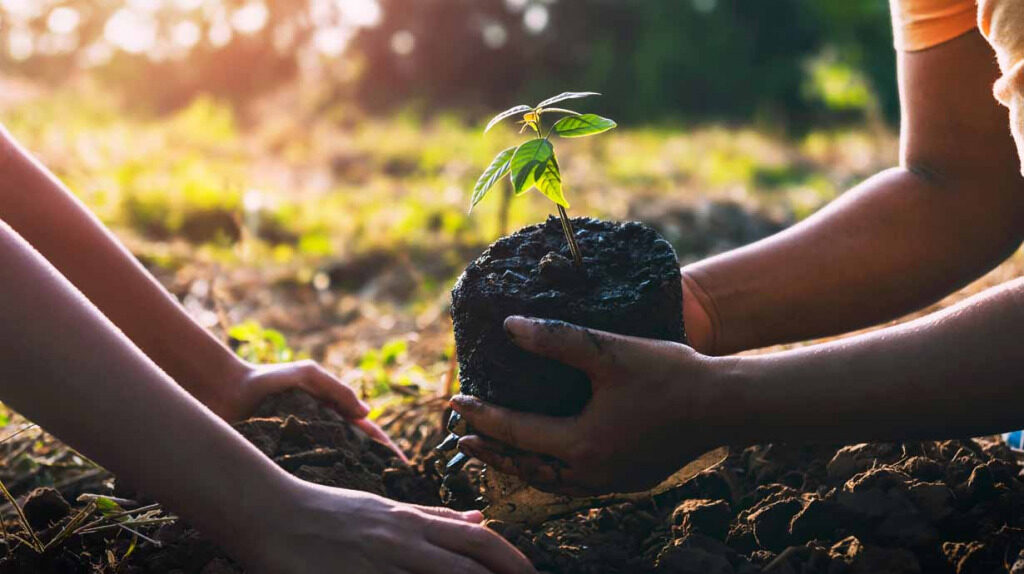This article is published on Hotelier India on 8th August 2022
As the international community becomes increasingly aware of the challenges due to climate change and environmental degradation, sustainable tourism is now not only a necessity but a rising trend for travellers. The ongoing Pandemic has made them more concerned about the environment than before. Nearly three quarters of travellers believe in ‘Green Travel’, They look for sustainable travel choices and an environmentally conscious stay at eco-friendly hotels.

The environmental concerns of the hospitality industry have been making the headlines for all the wrong reasons as it causes huge amounts of waste and pollution. The hotel sector contributes almost 2% of global carbon emissions by the tourism industry, and this is set to increase as the industry grows.
It can be hard to ascertain where to start from, for the Hotels to become sustainable. Following are some tips for them to turn green and be eco-friendly.
Energy Conservation
Hotels should switch over to renewable energy sources like solar energy, wind energy, geothermal or bio fuel. Change lighting and controls to low energy consuming, for example use LED bulbs, using automated controls that switch off lights when guests are not in room. Smart technology can be used to save energy. For example, switching on the Air Conditioners only once a room has been checked into. Energy can also be conserved by installing timers to appliances, boilers, upgrading refrigeration equipment, using cooking equipment and dishwashers more efficiently, automated management of heating and air conditioning.
Eco-friendly Cleaning Products
Green hotels should get rid of all chemical cleaners and replace them with ecological and biodegradable alternatives. The detergents used to clean the pavements, furniture, or linens, as well as the soaps used by guests, should be natural and eco-friendly. For instance, flower waste can be recycled to make surface cleaners and soaps. This simple approach can help to save 35 g of CO2 per guest every day, which is the equivalent of conserving one tree.
Embrace Recycling

Recycling is good for hotels to be eco-friendly, as 50-60% of their waste can be recycled. The soap bars, small shampoos and conditioners, the disposable toothbrush in rooms, food waste, paper, cardboard, beverage cans, plastic bottles, etc, all can be recycled. Do not use single use plastics. Train the staff, make recycling a standard procedure in Hotels and eco-friendly guests will join in your efforts.
Organic Food
Provide delectable, organic and healthy food at your hotel. This is the best way to attract eco-minded travellers and make them aware of the culture nearby.
Sourcing locally produced organic food will not only reduce the carbon footprint but also be a fresh, healthy alternative full of nutrients and antioxidants.
In-house Urban farming

Hotels can have their own garden to produce organic food. For this a Hotel can do roof top gardening if it is not having access to fertile land. A roof top garden is not only eco-friendly but also allures guests to relax and dine. Fresh organic vegetables can be produced in-house and wastage of food can be considerably reduced.
Alternatively, vegetables can be grown by indoor vertical hydroponic gardening also.
Water Conservation
Establish a water management plan, outlining water saving targets and the resources required to achieve them. Mark out areas where usage is high and make strategies to reduce use of water there. In the kitchen, use dishwashers only on full loads, instead of using running water to wash fruit and vegetables in a sink. In bathrooms, set shower flow to less than than 10 litres per minute, install low-flow toilets. In laundry ensure that machines are fully loaded before use, minimise the rinse cycle, install tanks to reuse water from previous rinse cycles.
If there is a swimming pool, cover when not in use to avoid evaporation. Housekeeping staff to be trained not to flush the toilet repeatedly when cleaning, not to leave taps flowing or not to use excessive water in mopping. Place an optional provision for guests to reuse linen and towels. Educating guests on water consumption, to take shower instead of bath, not to leave the tap running while shaving or brushing teeth. Rain water harvesting is a must do. Recycling of grey water for various non-drinking purposes, such as flushing toilets and irrigating gardens.
Guests and Guest Rooms
The visitors have a big impact on the hotel’s sustainability plan. Leave little note cards throughout the room as gentle reminders regarding water and electricity consumption. Instead of using modern plastic keys cards made of PVC based plastic, hotels can switch to cards made up of recycled paper or bioplastics. Glass cups and ceramic mugs should be provided for beverages.
Rent A Bike Service
Biking is a healthy alternative for guests to travel in the surroundings while remaining environmentally conscious. Bicycles and walking maps should be available to the visitors at the Hotel.
Eco-friendly Furniture
The furniture at the hotel should be preferably one-of-a-kind items made by local artisans using local resources. Eco-friendly hotels can use creative recycling to give a distinctive and innovative touch to their assets.
Fair-trade Products
Being a sustainable structure includes not just ecological sustainability, but also social, economic, and trade balance. Guests should also enjoy the quality of fair-trade items, as a hotel contributes to the development of a fair economy that is in tandem with the regional heritage of the surroundings.
The Coronavirus Pandemic has changed the outlook of travellers, and the hospitality industry ought to do the same. Sustainability is the key for future

